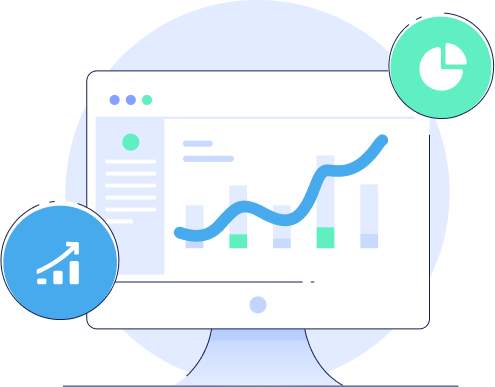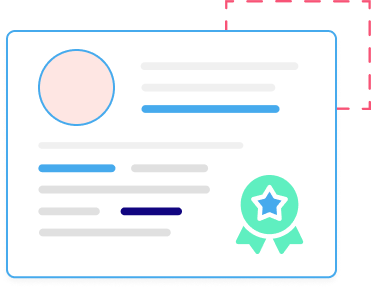
About the SAP BI Training Program
Our SAP BI Training Program is designed to provide you with the essential knowledge and practical experience needed to excel in the dynamic field of SAP Business Intelligence. This comprehensive course integrates core BI concepts with hands-on training, preparing you for real-world challenges in SAP environments.
Learn from Experts
Learn from SAP-certified instructors who bring extensive industry expertise to the classroom. Gain access to the latest SAP BI tools, valuable tips, and best practices, ensuring you build a solid foundation while exploring advanced topics.
Comprehensive Curriculum
The program covers everything you need to know, including:
- Fundamentals of SAP BI: Establish a strong grounding in the principles of Business Intelligence.
- Data Modeling: Learn how to design effective data models to support decision-making.
- Reporting Tools: Discover how to create insightful reports using SAP BI tools.
- Performance Tuning: Master techniques for optimizing performance and ensuring efficient data processing.
- Integration with SAP HANA: Explore how to leverage SAP HANA for enhanced data analytics and reporting.
Why Choose This Program?
Our program emphasizes hands-on learning, with practical exercises designed to reinforce your skills and knowledge. You’ll work with real-world datasets and gain practical experience with SAP BI tools, making you job-ready. Upon completion, you will be prepared to pursue certification and embark on a career in SAP BI or related fields, with a strong foundation in business intelligence and analytics.
Join us and elevate your career in SAP BI, positioning yourself for success in today’s data-driven world.
Key Highlights of The Training

Certification Ready
Prepare for certification with mock tests and guides.
Broad Curriculum
Covers SAP BI basics to advanced SAP BW/4HANA features

Job-Ready Skills
Acquire SAP BI for HANA
skills to be job-ready.
Course Outline
Learning Path of Data Science
Program Cohorts includes Aspiring professionals of any educational background with an analytical frame of mind is suited to pursue the Data Scientist Master’s Program
Chapter 1 – Python Basics
Chapter 2 – Python Data Structures
Chapter 3 – Python Programming Fundamentals
Chapter 4 – Working with Data in Python
Chapter 5 – Working with NumPy Arrays
Chapter 1 – Data Science Overview
Chapter 2 – Data Analytics Overview
Chapter 3 – Statistical Analysis and Business Applications
Chapter 4 – Python Environment Setup and Essentials
Chapter 5 – Mathematical Computing with Python (NumPy)
Chapter 6 – Scientific computing with Python (Scipy)
Chapter 7 – Data Manipulation with Pandas
Chapter 8 – Machine Learning with Scikit–Learn
Chapter 9 – Natural Language Processing with Scikit Learn
Chapter 10 – Data Visualization in Python using matplotlib
Chapter 11 – Web Scraping with BeautifulSoup
Chapter 12 – Python integration with Hadoop MapReduce and Spark
Chapter 1 – Introduction to Artificial Intelligence and Machine Learning
Chapter 2 – Data Wrangling and Manipulation
Chapter 3 – Supervised Learning
Chapter 4 – Feature Engineering
Chapter 5 – Supervised Learning-Classification
Chapter 6 – Unsupervised learning
Chapter 7 – Time Series Modelling
Chapter 8 – Ensemble Learning
Chapter 9 – Recommender Systems
Chapter 10 – Text Mining
Chapter 1 – Getting Started with Tableau
Chapter 2 – Core Tableau in Topics
Chapter 3 – Creating Charts in Tableau
Chapter 4 – Working with Metadata
Chapter 5 – Filters in Tableau
Chapter 6 – Applying Analytics to the worksheet
Chapter 7 – Dashboard in Tableau
Chapter 8 – Modifications to Data Connections
Chapter 9 – Introduction to Level of Details in Tableau (LODS)
Chapter 1 – Fundamental SQL Statements
Chapter 2 – Restore and Back-up
Chapter 3 – Selection Commands: Filtering
Chapter 4 – Selection Commands: Ordering
Chapter 5 – Alias
Chapter 6 – Aggregate Commands
Chapter 7 – Group By Commands
Chapter 8 – Conditional Statement
Chapter 9 – Joins
Chapter 10 – Subqueries
Chapter 11 – Views and Index
Chapter 12 – String Functions
Chapter 13 – Mathematical Functions
Chapter 14 – Date – Time Functions
Chapter 15 – Pattern (String) Matching
Chapter 16 – User Access Control Functions
Chapter 1 – Introduction to Business Analytics
Chapter 2 – Introduction to R Programming
Chapter 3 – Data Structures
Chapter 4 – Data Visualization
Chapter 5 – Statistics for Data Science I
Chapter 6 – Statistics for Data Science II
Chapter 7 – Regression Analysis
Chapter 8 – Classification
Chapter 9 – Clustering
Chapter 10 – Association
Download SAP Brochure
Best-in-class content by leading faculty & industry experts in the form of videos, industry projects, assignments & live sessions

Training at Best
myTrainingwala
An organization with Industry expertise trainers and verified Data Science training and certification to fill the demand for data scientists in the market.
- Advance Practical Learning
- Endless Job Opportunities
- Industry Expert Guidance
Demand Of SAP BI
SAP Business Intelligence (SAP BI) professionals are in high demand across various industries, and the need for skilled experts continues to grow as companies strive to become more data-driven. With the increasing importance of data analytics in decision-making, organizations are actively seeking certified SAP BI professionals who can manage, analyze, and interpret large volumes of data to drive business insights and strategic actions.
Career Opportunities
By mastering SAP BI, you can become a valued SAP BI Developer, SAP BI Project Manager, SAP Data Analyst within a leading organization. Equip yourself with the skills that employers are looking for and position yourself for success in the dynamic SAP landscape.

Who Should Enroll
- IT Professionals
- Analytics Managers
- Business Analysts
- Banking and Finance Professionals
- Marketing Managers
- Supply Chain Network Managers
- Beginners or Recent Graduates in Bachelors's or Masters Degree
MTW Certification
After completing the Data Science Training course successfully, acquire this prestigious recognition from myTrainingwala. You will be qualified in Natural Language Processing, Deep Learning, Business Intelligence/ Data Analytics, Business Analytics, and Data Engineering.
The certificate will serve as evidence of your expertise in Data Science. Avail greater job security and a good salary with IT Career

